To: Board of Trustees, City College of San Francisco
CC: Chancellor Fisher, Chancellor Scott-Skillman, college community
Re: Progress?
Despite what some naysayers predicted, the College has done it—produced a comprehensive document that maps out how CCSF will meet the gauntlet thrown down by the ACCJC. Because all constituencies have worked hard, a number of recommendations have already been met and the College has produced a progress report that should impress upon our critics how seriously the District takes this task. Even under a relentless timeline, the October 15 Special Report represents a significant response to the recommendations. It also represents significant changes.
As a College, we do well to remember that there are areas where we can improve. At an institution that has in some cases been too slow to make smart changes, we note that thoughtful, carefully implemented measures—and we do mean thoughtful, nuanced, and responsible measures—to improve enrollment and scheduling, streamline management, and implement improved technologies are possible. Such changes will make better use of shrinking resources and have less damaging impacts on students or the workers who serve them.
We are, however, fully concerned that some changes will have severely negative impacts on students and the education we offer them and on positive working conditions that support educational quality. Change is not bad on principle, and maintaining our accreditation is essential, but reforms that are made thoughtlessly, too quickly, or without consultation will surely beget unintended, negative consequences. Some solutions are better than others, and some “solutions” are not solutions at all.
As we have said, even in these troubling times, we do not believe this College must wholesale shift its priorities away from quality education, the needs of our students and community, or care for the workers who serve those students. Some of the proposals the Board now has before it run just this risk, and in the extreme. The October 25 agenda item proposing drastic restructuring of our academic programs is an alarming example of an extreme and foolhardy swing of the pendulum.
This proposed restructuring has been made without consultation and without, as far as we can tell, necessary consideration of the education we provide. There has been no opportunity for discussion or understanding of these enormous changes that will affect every sector of the College. Questions abound. Whose “best practices” are these? What content knowledge and expertise will Deans and Chairs of multiple programs be able to bring to the day-to-day workings of our programs? Who will schedule hundreds of classes and faculty members, pursue and manage grants, and establish community links to employers and internships—just a few of the responsibilities our Department Chairs currently oversee? Without legally mandated oversight, how will our celebrated Career and Technical Education programs such as Nursing and Fire Science maintain their accreditations? And is the goal a more effective structure or to bust the Department Chairs’ Council, a certified bargaining unit? These questions necessitate bargaining, explication, and input from those who best understand the impacts.
This proposal needs to go back to the drawing board, so to speak; by no means should the Board approve it.
But this non-inclusive proposal is simply the latest and most extreme manifestation of a growing problem our college community is facing—the manner in which changes are being imposed at City College and the devaluation of the expertise of those doing the work of educating and supporting our students. This is not progress: unilateral, top-down proposals lead to deficient proposals.
Faculty expertise and students’ and workers’ concerns must be genuinely considered—at the bargaining table, on accreditation teams, in governance, and in all major decisions affecting the future of CCSF. Indeed the future of the college and the education we offer students depend on it. Decisions made without sufficient expertise and input can lead to disruption and confusion rather than improvement—and can jeopardize the College’s well-being.
We have already challenged the Board, collectively, to consider and address with integrity the task before you. We have called attention to the lack of transparency and the importance of constituency input. The wealth of expertise and dedication evident at CCSF should not be ignored or trampled.
We likewise reiterate our expectation that the Board respect collective bargaining and ensure that all negotiable items are brought to the appropriate bargaining tables. Labor and collective bargaining are not at fault here.
Even the CEO of FCMAT, Joel Montero, is clear on this point. “Labor is not the villain,” he pointed out to the Board of Governors earlier this month in speaking of City College’s difficult financial situation. “Those issues should not be laid at the feet of labor.” He went on to note that in public education “we spend most of our money in the category of people,” reporting that in the K12 system, for “salary and benefits, [districts are] spending in the neighborhood of $0.94 of every $1, up from $0.84 prior to 2007-2008.” That number is expected to rise “as the state’s issues continue to exacerbate funding and support programs at the local level.” We are hardly alone in our fiscal crisis; in fact, there is agreement among some that if Proposition 30 fails, the resulting trigger cuts would likely cause the demise—the actual disappearance—of several smaller community college districts in the state.
Faculty and employee groups have consistently stepped up to the plate in addressing the current crisis, yet we have been left out of any authentic decision-making process and unilateral changes are being implemented. We have also heard consistently from students that they are being excluded from the process. And it increasingly looks as though Board members, who say they invited a Special Trustee (rather than have one imposed) in order to retain their stewardship of the District, are nonetheless ready to abdicate their role in the decision-making process as well. Is it not our joint responsibility to maintain our accreditation, our fiscal solvency, and most importantly the ability to serve our students well?
We have been criticized for being “too generous” and told that we are flawed because we have “San Francisco values.” We reject these notions, and we reject the wholesale downsizing of a college that has done so much for San Francisco.
We have not been criticized for the quality of the education we provide to students or the dedication of those who do that work. It would be a tragedy beyond measure if the Accreditation Commission’s visiting team returned in March to find a College that was unrecognizable, a College no longer serving its community well, no longer able to meet the needs of its diverse and deserving student population.
Avoiding that tragedy depends in part on the outcome of November’s election—on passing Proposition A locally and Proposition 30 statewide. But it also depends on the “hard choices” this College makes and how they impact our students and those who do the work of educating and supporting them. It depends on the ability of the Board and administration to work with the entire college community collaboratively and with integrity to make smart—even if tough—decisions.
On behalf of AFT 2121,
Alisa Messer
President


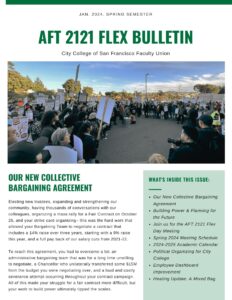
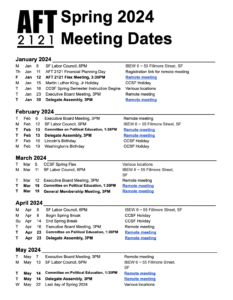
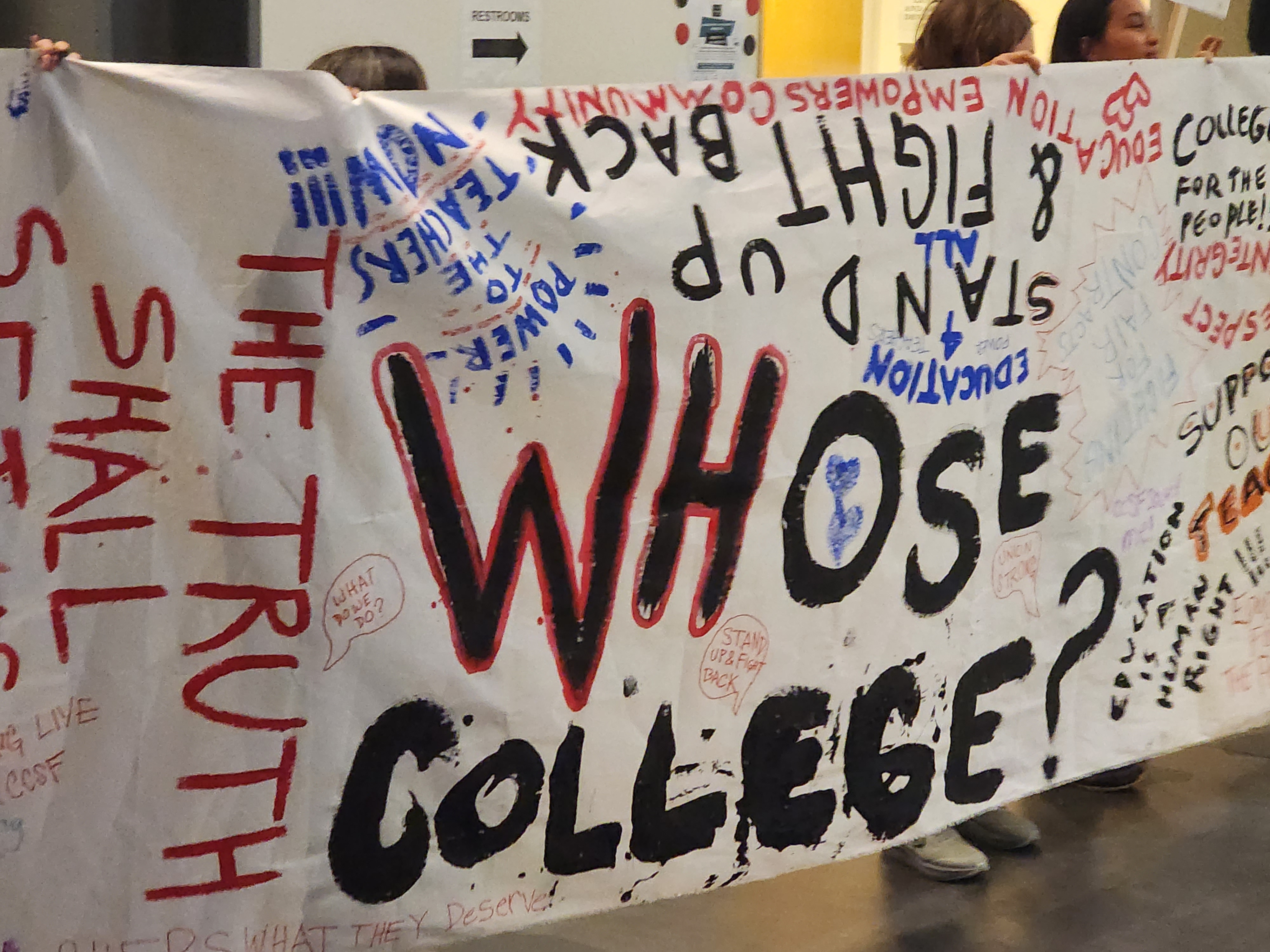
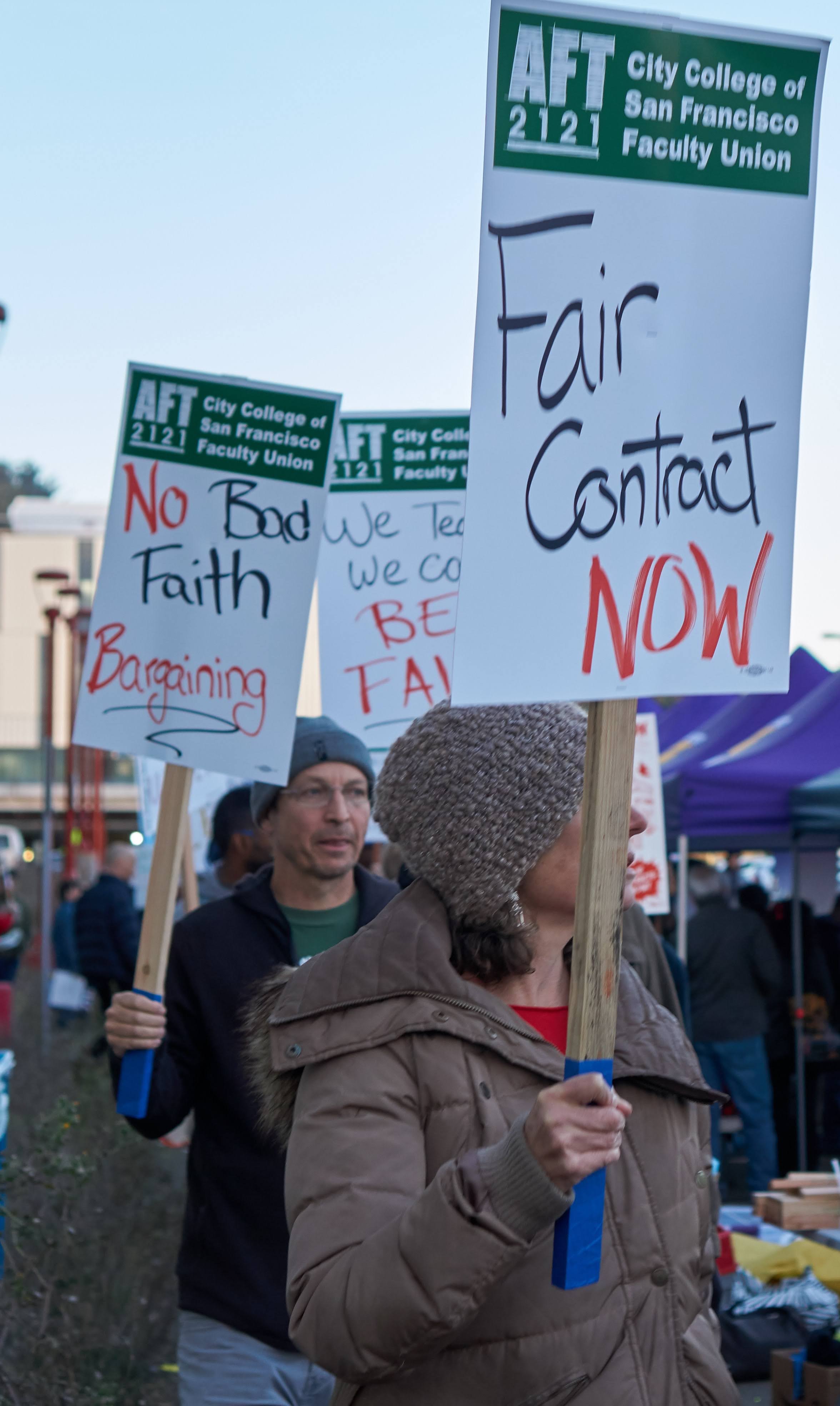
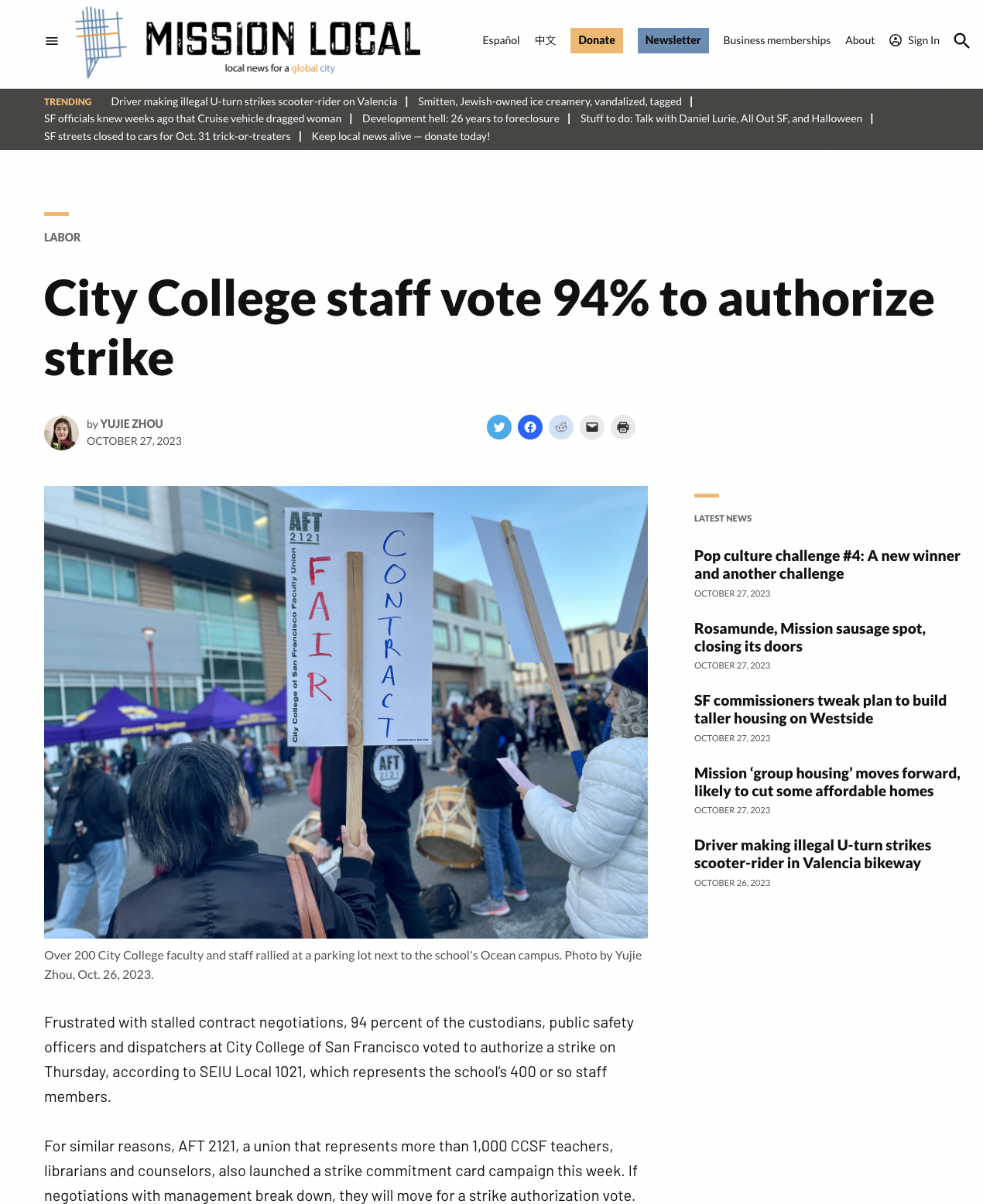
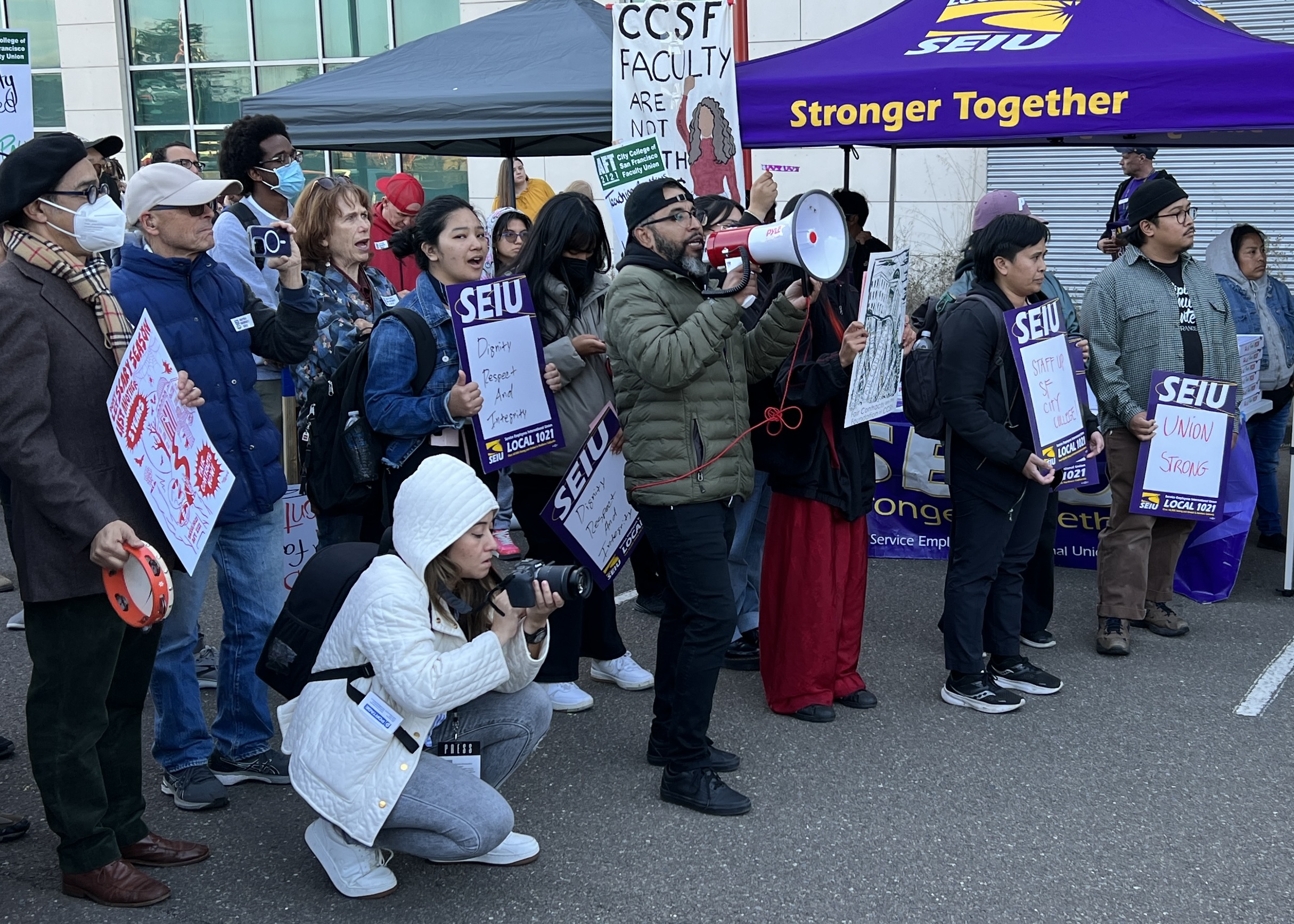
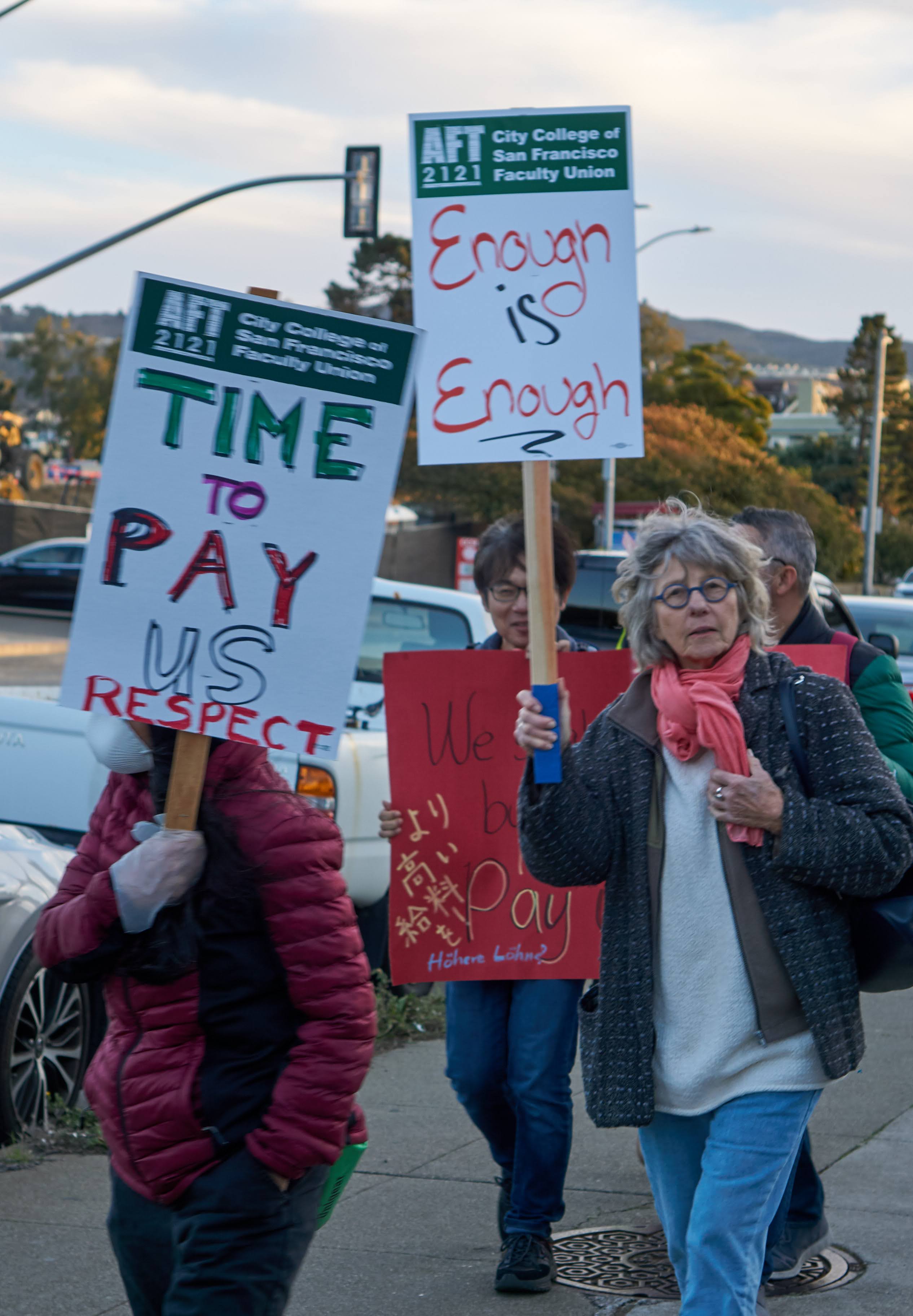
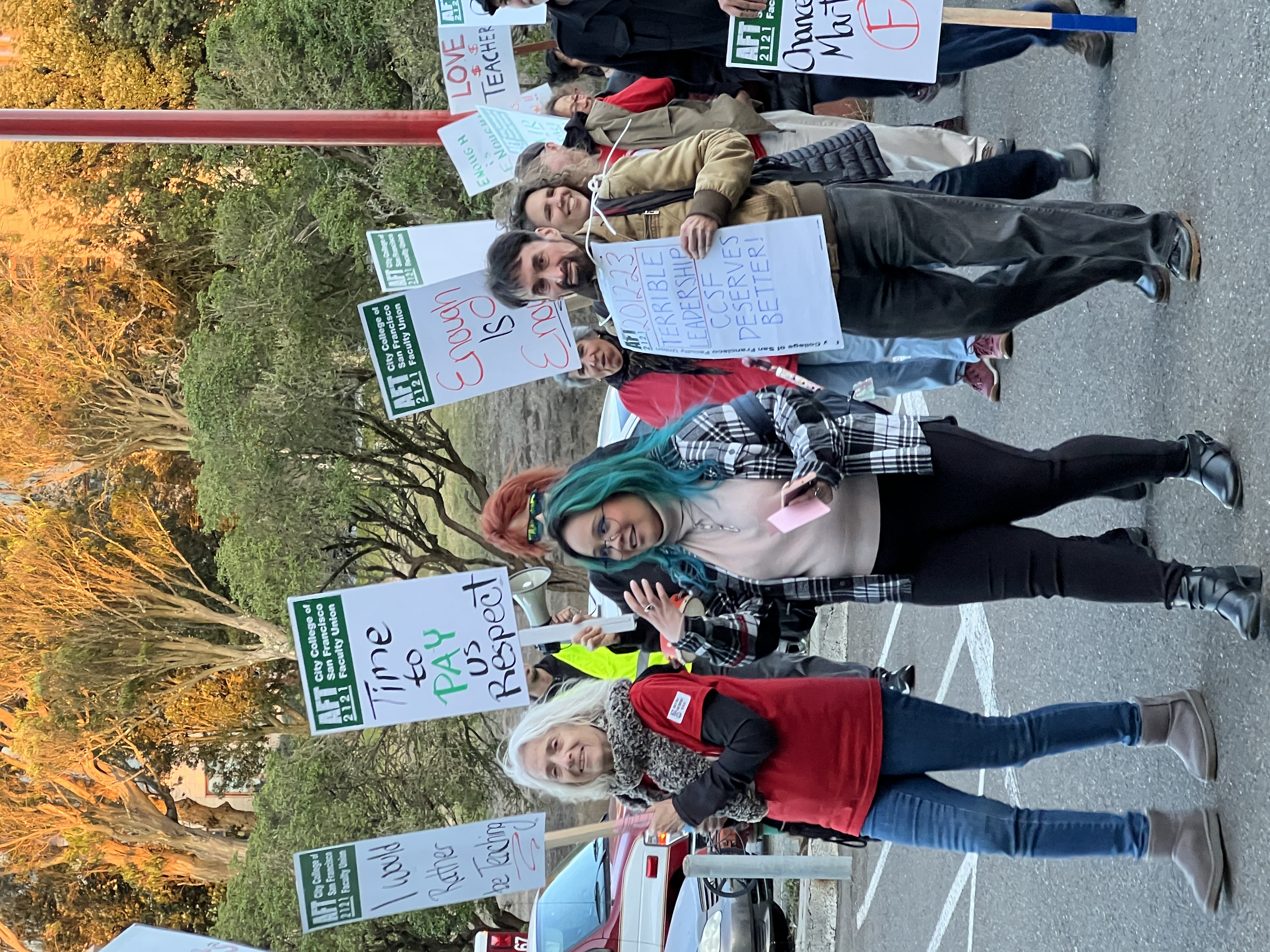
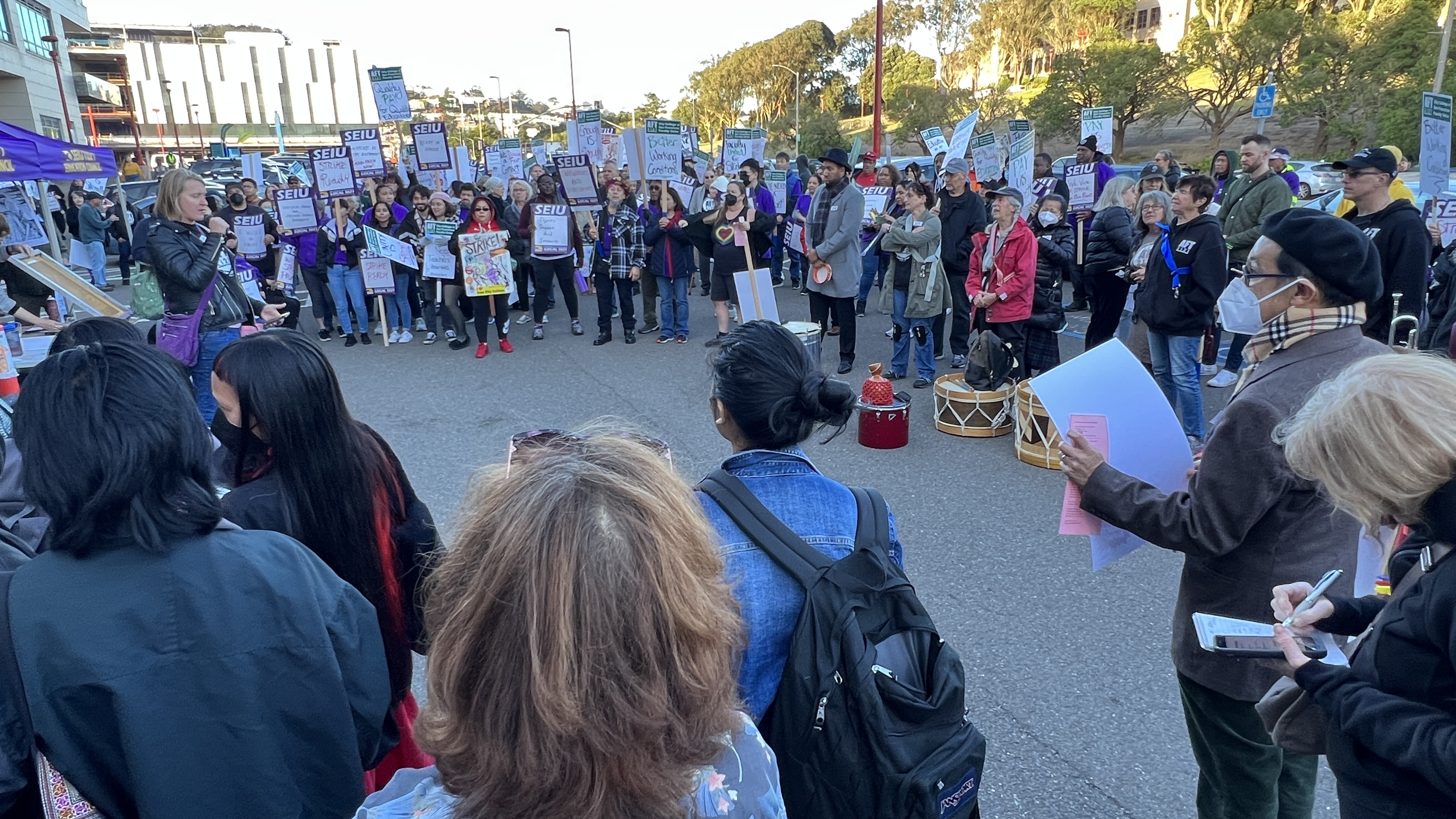
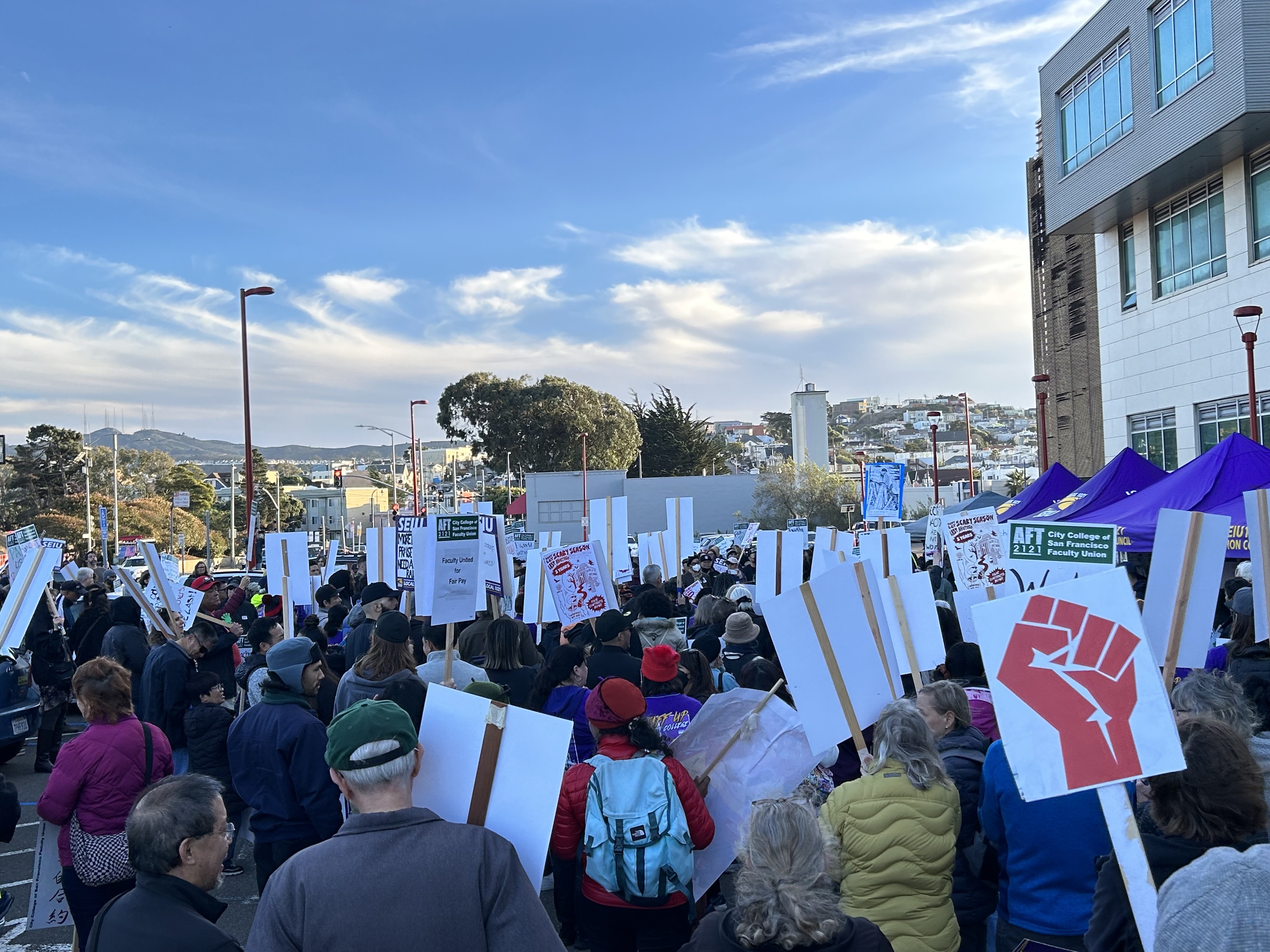
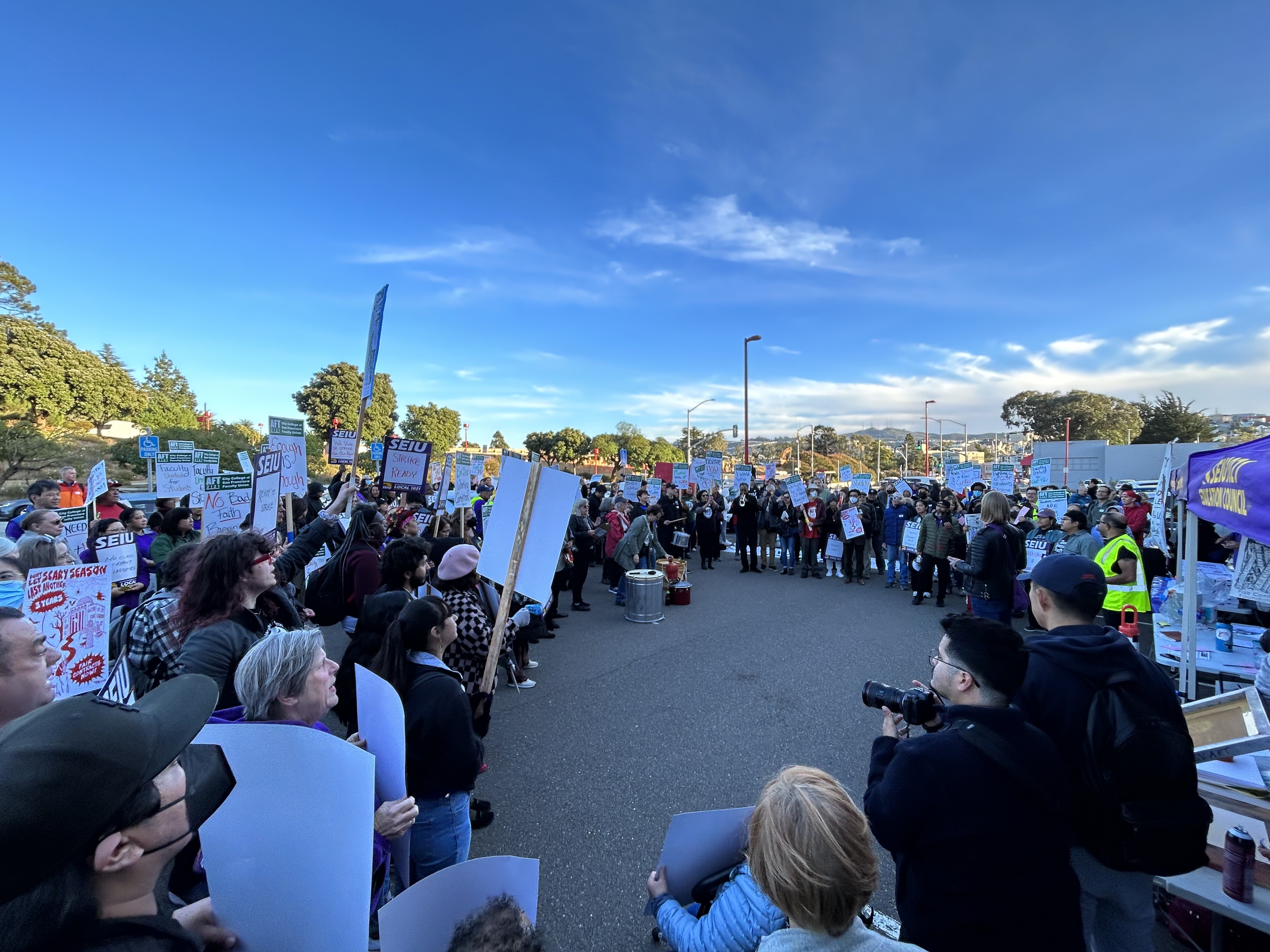
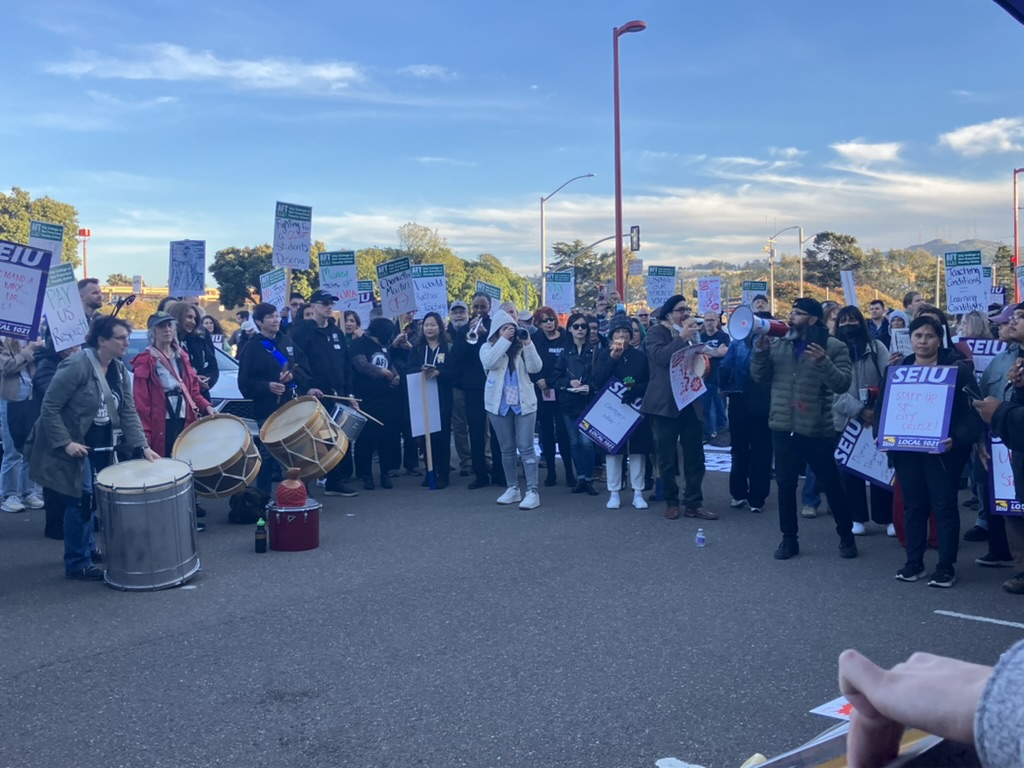
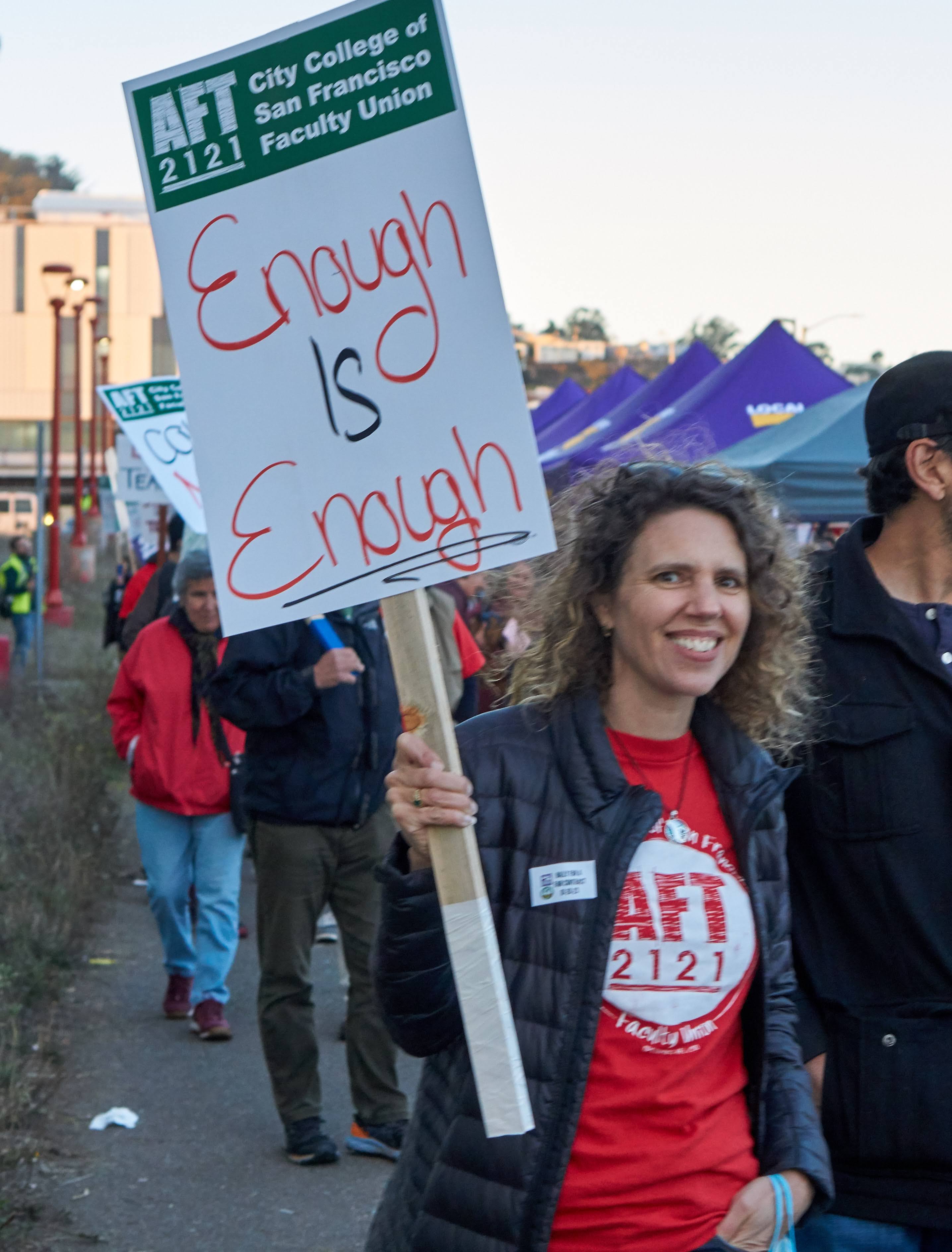

Follow Us!